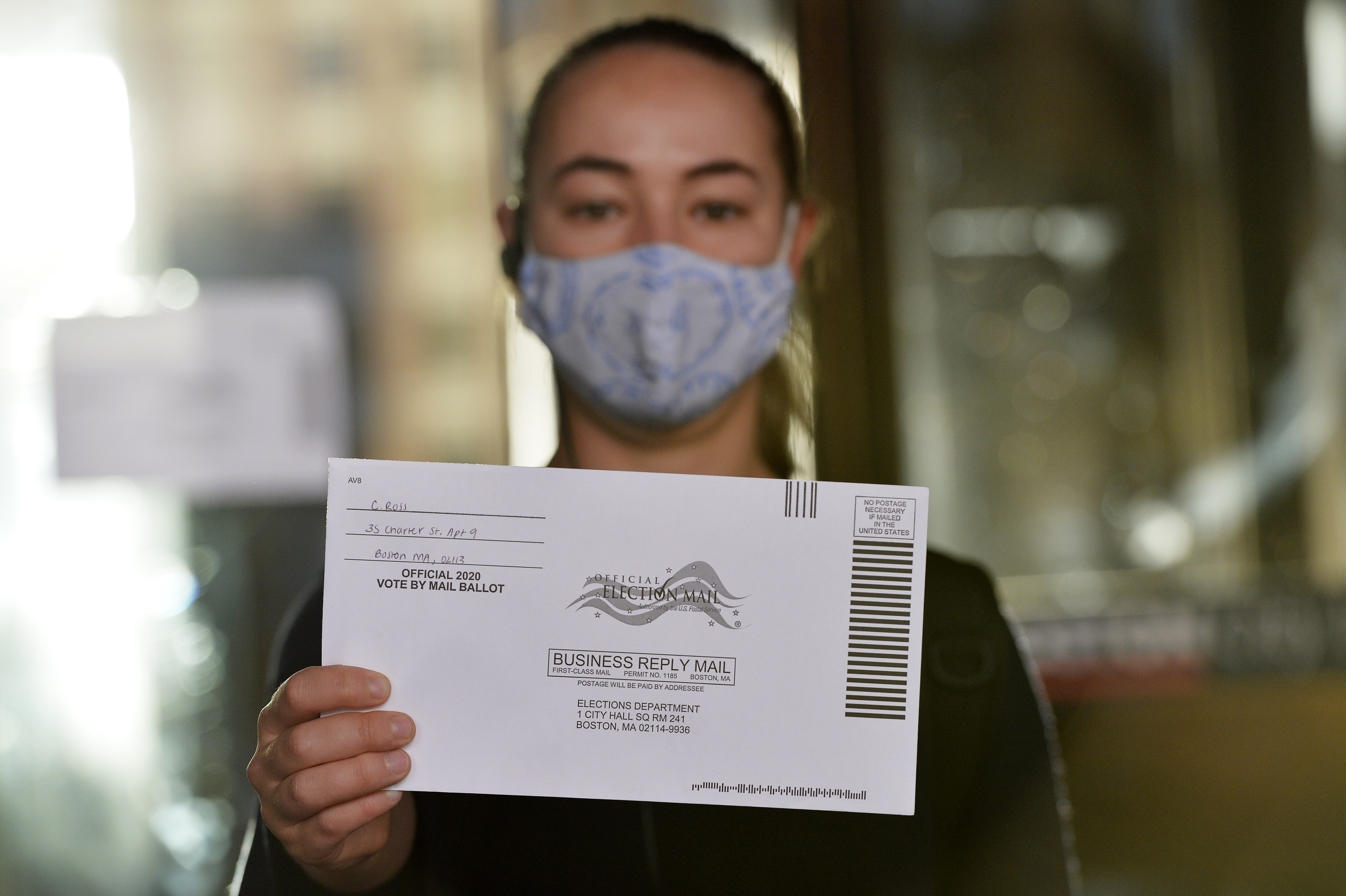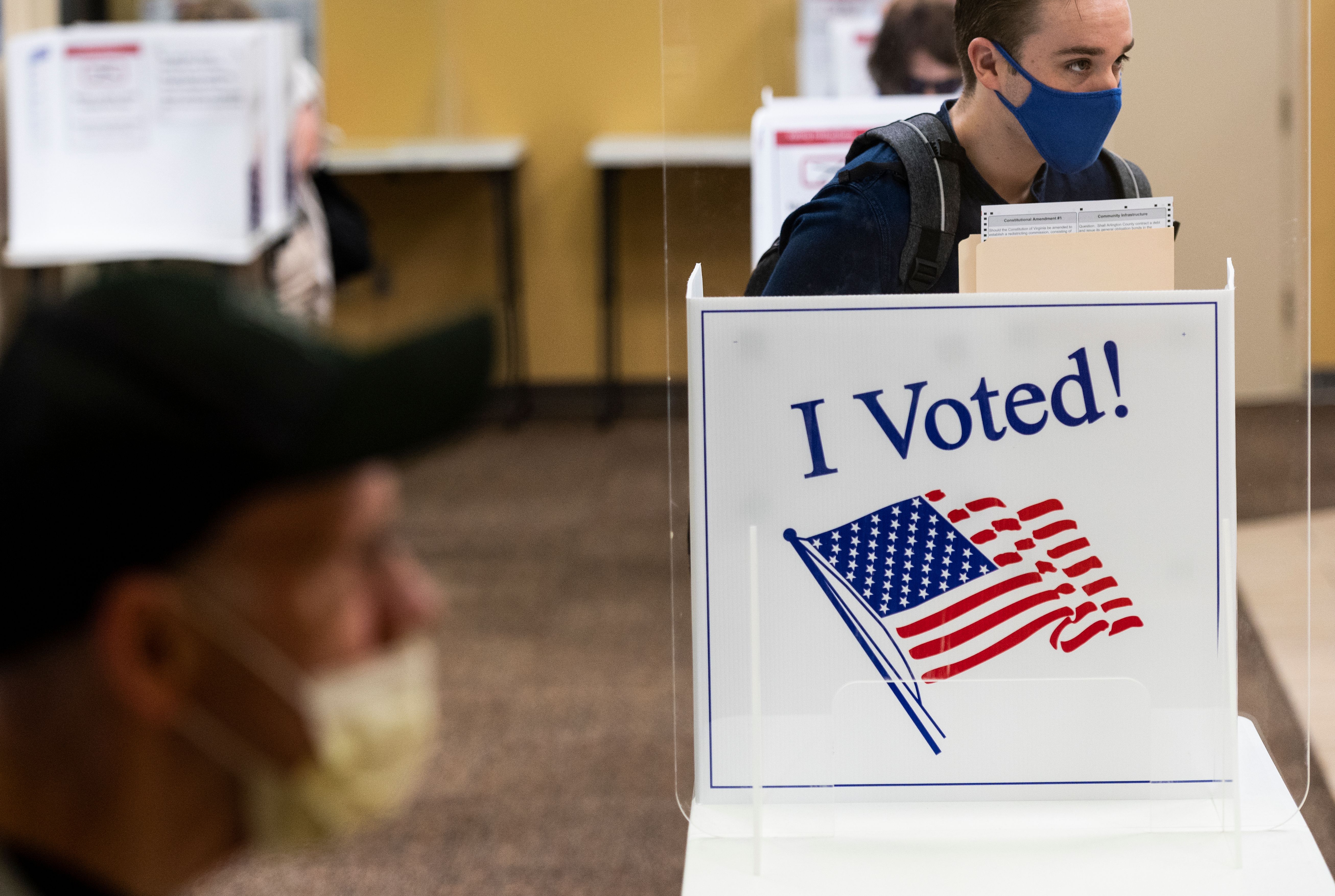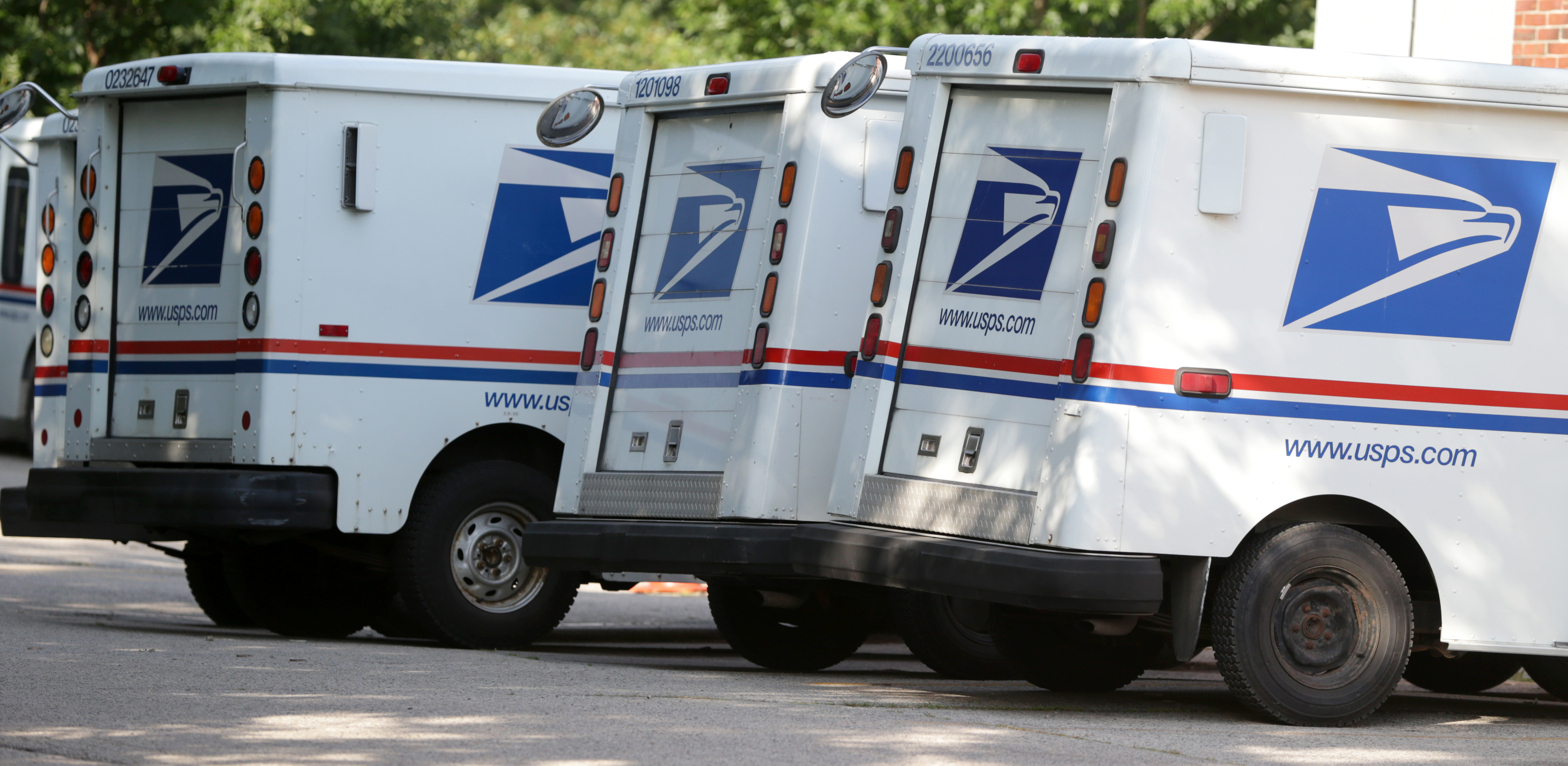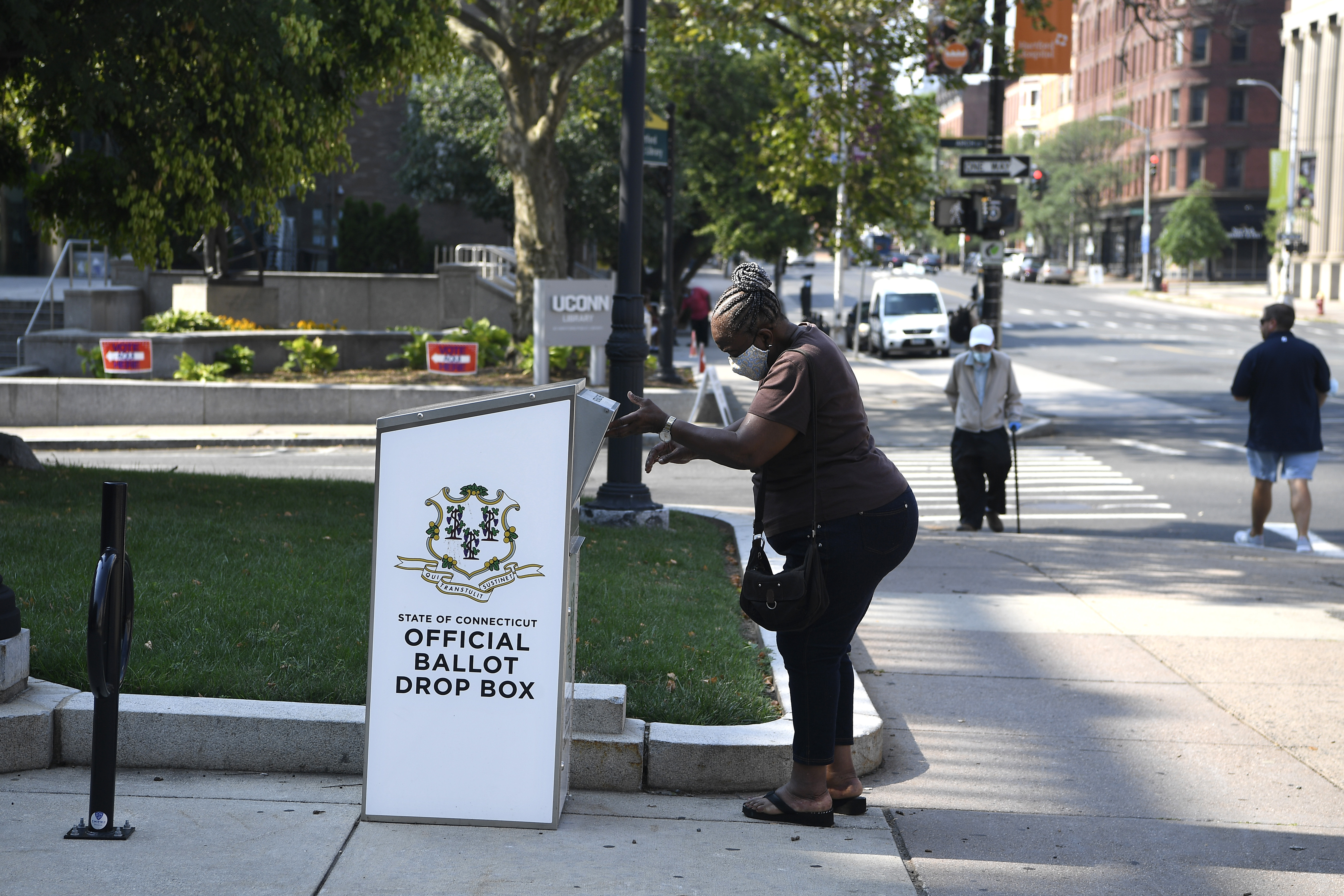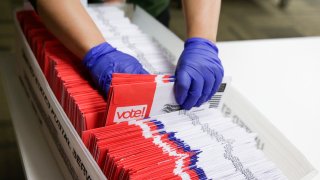
Amid the coronavirus pandemic, the 2020 election season promises to be like no other New Englanders have experienced.
With Election Day approaching on Nov. 3 -- in addition to state primary elections -- voters must choose how they plan to cast their ballots, whether it be in-person, by early voting or through the mail.
The elections come amid backlash against the U.S. Postal Service after the agency warned many states that it could not guarantee all ballots cast by mail would arrive in time to be counted, even if mailed by state deadlines.
Here's everything you need to know about voting in the 2020 elections in New England.
Voting by Mail
On Aug. 21, Postmaster General Louis DeJoy told senators the agency “is fully capable and committed to delivering the nation’s election mail securely and on-time;” and said it was his "No. 1 priority between now and Election Day.”
Still, questions remain about the role of the postal service and its ability to ensure on-time delivery of ballots for the November election.
Against that backdrop, state officials throughout New England are urging voters to mail in their ballots as soon as possible to avoid any problems.
Voting by mail allows voters to avoid potential exposure to the coronavirus. In order to cast your ballot by mail, fill out your state's application for a mail ballot. In some states, absentee ballots are being made available to those who do not feel comfortable voting in person.
| State | In-Person Early Voting | Deadline for Mail-In/ Absentee Voting Applications | Mail Ballot Deadline |
| Conn. | N/A | Nov. 2 | Postmarked Nov. 3 |
| Maine | Oct. 4-29 | Oct. 29 | Received: Nov. 3, 8 p.m. |
| Mass. | Oct. 17-30 | Oct. 28 | Postmarked Nov. 3 |
| NH | N/A | N/A | Received: Nov. 3, 5 p.m. |
| RI | Oct. 14 | Oct. 13, 4 p.m. | Received: Nov. 3, 8 p.m. |
| Vt. | Sept. 19 | Nov. 2 | Received: Nov. 3, 7 p.m. |
Connecticut
Applications for general election mail-in ballots are available online and must be postmarked on Nov. 3 or earlier, or hand-delivered to the local town clerk. Connecticut doesn't offer early voting in person.
Connecticut’s primary marked the last presidential primary of the 2020 election season after it had been twice delayed because of the COVID-19 pandemic. In addition to the presidential races, voters cast ballots in two GOP congressional primaries to determine who would face long-serving Democratic incumbents in November.
Secretary of State Denise Merrill said there were about 300,000 requests for absentee ballots -- about 10 times the previous record for requests for absentee ballots in any election in Connecticut.
Justin Anderson, a lieutenant colonel in the Connecticut Army National Guard, emerged as the winner following a recount in a Republican congressional primary in which his opponent, Thomas Gilmer, dropped out of the race after being arrested on charges of first-degree unlawful restraint and second-degree strangulation. In November, Anderson will face U.S. Rep. Joe Courtney, a Democrat who has represented the eastern Connecticut district since 2007.
In the Republican primary in the 1st Congressional District, the party-endorsed candidate Mary Fay defeated James Griffin of Bristol, a West Point graduate who worked on military and budget issues during a career in Washington. Fay, a financial services executive and member of the West Hartford Town Council, will face Democratic U.S. Rep. John Larson in November's general election.
More than two dozen general election candidates for state legislature and registrar of voters were also decided.
Maine
Mainers can vote early in the general election, either by mail or by heading to the polls in person through Oct. 29. Absentee ballot requests can be made online by the deadline on Oct. 29 at 5 p.m. Ballots must be filled out and sent to the local municipal clerk, or to the Secretary of State, Division of Elections, by 8 p.m. on Election Day.
State primaries were held in Maine on July 14 after being delayed from the original June 9 date due to the coronavirus pandemic.
Maine House Speaker Sara Gideon beat two other Democrats for the right to challenge Republican U.S. Sen. Susan Collins in a race that’s critical to the battle for control of the Senate. Collins, a four-term senator with a reputation for independence, infuriated Democrats when she voted in support of Brett Kavanaugh, President Donald Trump’s controversial appointee to the Supreme Court.
Meanwhile, former state Rep. Dale Crafts won the state’s Republican primary in the 2nd Congressional District through ranked-choice voting. He will face first-term Democratic U.S. Rep. Jared Golden on the November ballot.
Massachusetts
Bay State voters can begin casting their ballots earlier this year, in part due to steps taken to expand voting options over concerns about the spread of the coronavirus.
Vote-by-mail applications are due Nov. 6 or must be postmarked no later than Nov. 3. Both the applications and ballots must be submitted to a local election office.
In-person early voting for the general election runs from Oct. 17 through Oct. 30. The state has been sending out mail-in ballots to voters who have requested them.
Massachusetts Ballot Questions
As Massachusetts residents prepare to vote in the Nov. 3 elections, there will be more to decide on than just who should be commander-in-chief
U.S. Sen. Edward Markey defeated U.S. Rep. Joe Kennedy III in a hard-fought Democratic primary, harnessing support from progressive leaders to overcome a challenge from a younger rival who is a member of America’s most famous political family.
In a general election contest in a state that has historically favored Democrats, Markey now faces attorney Kevin O'Connor, who won a low-key GOP Senate primary against Shiva Ayyadurai, who ran a failed campaign for Senate in 2018.
Ex-Marine Jake Auchincloss won a tight Democratic primary race to fill the U.S. House seat being vacated by Kennedy in Massachusetts' 4th Congressional District. The top two in the crowd of candidates -- Auchincloss and Jesse Mermell -- were separated by about 1.2% of the vote, with Auchincloss taking just over a 2,000-vote advantage. Seven other Democratic candidates sought to replace Kennedy in the race.
And longtime incumbent U.S. Rep. Richard Neal defeated his primary challenger, Holyoke Mayor Alex Morse.
New Hampshire
Granite State residents can request absentee ballots online for the general election during the coronavirus pandemic through their city or town clerk. Ballots must be received by the municipal clerk by 5 p.m. on election day, whether by mail or in-person delivery. New Hampshire does not offer in-person early voting.
State Senate Majority Leader Dan Feltes won the Democratic gubernatorial primary, promising to prove the pundits wrong and defeat Republican Gov. Chris Sununu in November.
In the GOP primary, Sununu faced longtime conservative activist Karen Testerman, of Franklin, and Nobody, a Keene man who officially changed his name from Rich Paul. Though his opponents criticized him, Sununu has enjoyed widespread support for his handling of the coronavirus pandemic as he seeks a third, two-year term.
Rhode Island
Rhode Island residents had to download the mail-in ballot application online and submit it to a local board of canvassers by Oct. 13. Ballots are due by 8 p.m. on Election Day. Early voting runs from Oct. 14 through Nov. 2.
Voters will decide between incumbent Democratic House Speaker Nicholas Mattiello and his challenger, Barbara Ann Fenton-Fung, a Republican activist and wife of a two-time GOP candidate for governor of Rhode Island.
There is a statewide race for U.S. Senate this year, with incumbent Democrat Jack Reed running for reelection. The gubernatorial race isn't until 2022.
Vermont
Vermont voters can request an early or mail-in ballot for the general election online or download and print the application to submit to their local clerk. All early voter ballot requests must be submitted by 5 p.m. on Nov. 2, the day before the election.
A record number of more than 150,000 residents requested early or absentee ballots for the primary election, which was held on Aug. 11. They had to be received by the voters’ town or city clerk before 7 p.m., when the polls closed, in order to be counted.
Vermonters also cast ballots traditionally. Cities and towns made special safety accommodations related to the pandemic, including communities that offered "drive-thru" voting.
One of Vermont’s most popular elected officials, Democratic U.S. Rep. Peter Welch, defeated activist Ralph “Carajou” Corbo, who also sought the Democratic gubernatorial nomination in the state’s primary election. Incumbent Phil Scott won the Republican primary election for governor in Vermont.
The Associated Press contributed to this report.
More Coverage on the USPS Controversy
States are considering litigation against the U.S. Postal Service as the agency undergoes a nationwide reduction plan that some complain is causing slowdowns in mail service.


